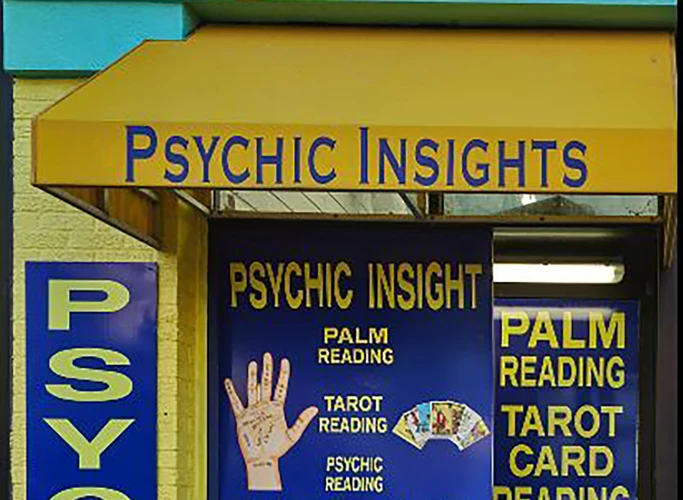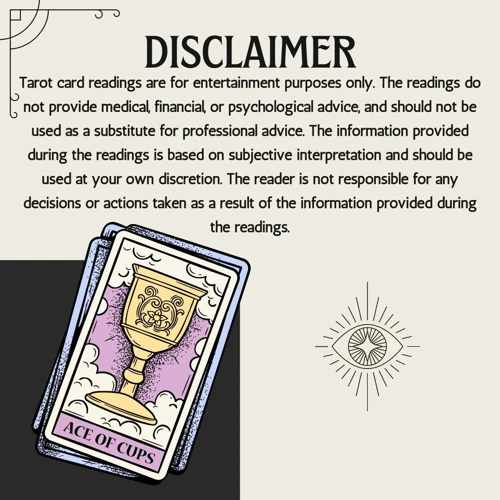In a world where privacy concerns are paramount, the concept of psychic privacy may seem perplexing to some. Psychic privacy refers to the rights and protections afforded to individuals regarding information divulged during psychic readings. This article will delve into the legal aspects surrounding psychic privacy, exploring the rights of individuals, the impact of data protection laws, the importance of informed consent, state regulations and licensing, legal challenges and precedents, and the implications of the digital age on psychic privacy. By understanding these legal intricacies, individuals and psychics alike can navigate the complex web of privacy laws and regulations that govern their interactions and protect their sensitive information.
Contents
- Understanding Psychic Privacy
- Legal Rights and Psychic Readings
- The Impact of Data Protection Laws
- Disclosure and Informed Consent
- State Regulations and Licensing
- Legal Challenges and Precedents
- Psychic Privacy in the Digital Age
- Seeking Legal Counsel for Psychic Matters
- Conclusion
-
Frequently Asked Questions
- 1. What exactly is psychic privacy?
- 2. Are psychic readings legally protected in terms of privacy?
- 3. Can psychics share personal information disclosed during a reading with others?
- 4. Is there a legal duty for psychics to inform clients about privacy practices?
- 5. Can clients take legal action if their privacy is violated during a psychic reading?
- 6. What role do consent and disclosure play in psychic privacy?
- 7. Are there specific regulations regarding psychic privacy in different states?
- 8. Can psychics be held liable for data breaches or misuse of client information?
- 9. How can clients ensure their privacy during psychic readings?
- 10. What can clients do if they suspect their privacy has been violated during a psychic reading?
- References
Understanding Psychic Privacy

Psychic privacy encompasses the rights and protections relating to the disclosure of personal information during psychic readings. The essence of psychic privacy lies in the expectation that the information shared during these sessions remains confidential and protected from unauthorized disclosure. Psychic readings often involve divulging intimate details about one’s personal life, relationships, and even spiritual beliefs. Clients seek the guidance and insights of psychics with the understanding that their private information will be respected and kept confidential. This trust forms the bedrock of psychic-client relationships and is essential for fostering open communication and a safe space for exploration. Understanding psychic privacy entails recognizing the sensitivity of the information exchanged and the expectation of confidentiality. It also includes being aware of the legal rights and obligations surrounding psychic privacy, such as the right to privacy and the psychics’ ethical duty to maintain confidentiality. Obtaining a thorough understanding of psychic privacy will enable both clients and psychics to establish a secure environment built on trust and respect. For tips on safeguarding personal information during psychic readings, you can refer to our article on safeguarding personal information in psychic readings.
Legal Rights and Psychic Readings

Legal rights play a crucial role in protecting individuals during psychic readings. One fundamental right in the context of psychic privacy is the right to privacy itself. Individuals have the expectation that their personal information and conversations during psychic sessions remain private and confidential. Psychics are also bound by ethical obligations to maintain confidentiality and uphold the trust placed in them by their clients. Understanding these legal rights not only empowers individuals to seek trustworthy and reputable psychics but also ensures that their sensitive information is handled responsibly. To learn more about the importance of confidentiality in psychic readings, you can refer to our article on the importance of confidentiality. By being aware of their legal rights and choosing psychics who value client privacy, individuals can foster a secure and supportive environment for their psychic experiences.
The Right to Privacy
The right to privacy is a fundamental aspect of psychic privacy. Individuals have a legal and ethical right to keep certain personal information private and protected from unauthorized disclosure. This right is recognized and upheld by various laws and regulations, including the General Data Protection Regulation (GDPR) and other privacy laws. In the context of psychic readings, clients expect that their personal information, thoughts, and experiences shared during sessions will remain confidential. Psychics have a duty to respect the privacy of their clients and safeguard the information disclosed to them. It is essential for clients to choose psychics who value client privacy and adhere to professional guidelines and ethical standards. When seeking psychic services, clients should review the psychic’s privacy policy and ensure that their personal information will be handled securely and confidentially. By selecting psychics who prioritize client privacy, individuals can maintain control over their personal information and feel confident in the privacy protections afforded to them. For more information on choosing psychics who value client privacy, refer to our article on choosing psychics who value client privacy.
Confidentiality and Ethical Obligations
Confidentiality and ethical obligations form a crucial aspect of psychic privacy. Psychics have a moral and ethical responsibility to maintain the confidentiality of the information shared during readings. Clients trust that the personal details they disclose will remain private and not be disclosed without their consent. In many cases, psychics operate under a code of conduct or ethics that emphasizes the importance of confidentiality. This code ensures that psychics treat their clients’ information with the utmost respect and professionalism. The ethical obligations of psychics often extend beyond mere confidentiality, encompassing responsibilities such as honesty, integrity, and avoiding conflicts of interest. Psychics should provide a safe and secure environment where clients can openly share their concerns without fear of judgment or unwanted disclosure. Adhering to these ethical standards strengthens the trust between psychics and their clients, fostering a positive and respectful relationship. To learn more about the importance of confidentiality in psychic readings, you can refer to our article on the importance of confidentiality in psychic readings.
The Impact of Data Protection Laws

Data protection laws have a significant impact on psychic privacy, as they govern the collection, storage, and use of personal information during psychic readings. The General Data Protection Regulation (GDPR), in particular, plays a crucial role in safeguarding individuals’ personal data and ensuring their privacy rights are respected. Under the GDPR, psychics are considered data controllers and must comply with strict data protection obligations, including obtaining informed consent, implementing appropriate security measures, and providing individuals with the right to access, rectify, and delete their personal data. Additionally, other privacy laws and regulations may exist at the national and regional levels, further reinforcing the need for psychics to prioritize privacy and data protection. This includes ensuring that client information is kept securely and confidentially, and that it is only used for the intended purpose of the psychic reading. By adhering to data protection laws and implementing robust privacy practices, psychics can create a trusted environment where clients can feel confident in sharing their personal information.
General Data Protection Regulation (GDPR)
The General Data Protection Regulation (GDPR) is a comprehensive data protection law that was implemented in the European Union (EU) in 2018. It sets strict guidelines and regulations for the collection, processing, and storage of personal data. While the GDPR primarily applies to businesses and organizations operating within the EU, it has far-reaching implications for psychic practitioners who offer their services to individuals residing in the EU. As psychics often gather personal information from their clients during readings, they must ensure compliance with the GDPR to protect the privacy and rights of their EU clients. The GDPR requires psychics to obtain informed consent from individuals before collecting their personal data and to clearly outline how the data will be used and stored. It also grants individuals the right to access their personal data, request its deletion, and object to its processing. In the context of psychic readings, this means that psychics must inform their clients about the purposes and methods of data collection, as well as their rights regarding their personal information. It is crucial for psychics to implement appropriate security measures and data protection protocols to safeguard the personal data of their clients. Failure to comply with the GDPR can result in significant penalties and legal consequences. It is essential for psychics to familiarize themselves with the specific requirements of the GDPR and take necessary steps to ensure compliance.
Other Privacy Laws and Regulations
Other than the General Data Protection Regulation (GDPR), there are various other privacy laws and regulations that play a role in protecting the privacy of individuals engaged in psychic readings. These regulations vary from country to country and even within different states or regions. For example, in the United States, the Health Insurance Portability and Accountability Act (HIPAA) imposes strict privacy and security rules on healthcare providers. While psychics may not fall directly under the purview of HIPAA, it is essential for them to be aware of potential overlaps or circumstances where these regulations may apply.
Additionally, there are state-specific privacy laws that may govern the collection, storage, and disclosure of personal information by psychics. For instance, the California Consumer Privacy Act (CCPA) grants Californian consumers certain rights concerning their personal information, such as the right to know, the right to delete, and the right to opt-out of its sale. Psychics operating in California need to be cognizant of these requirements and ensure compliance to protect their clients’ privacy.
Some countries have specific legislation that addresses psychic services directly. Australia, for example, has regulations such as the Australian Consumer Law (ACL) that safeguard consumers against misleading or deceptive conduct, including in the provision of psychic services.
Understanding these additional privacy laws and regulations is crucial for psychics to operate within the boundaries of the law and protect their clients’ privacy. It is recommended that psychics consult with legal professionals familiar with privacy laws in their jurisdiction to ensure compliance and provide their clients with a secure and confidential experience. For more information on the importance of confidentiality in psychic readings, you can refer to our article on the importance of confidentiality.
Disclosure and Informed Consent

When it comes to psychic readings, disclosure and informed consent are crucial elements to consider. Disclosure refers to the psychic’s obligation to provide clients with clear and accurate information regarding the nature and limitations of the services they offer. This includes informing clients about the psychic’s qualifications, experience, and any potential risks associated with the reading. By disclosing this information upfront, clients can make informed decisions about whether to proceed with the reading or seek guidance elsewhere. Informed consent, on the other hand, involves clients acknowledging and agreeing to participate in the psychic reading after understanding the relevant information disclosed.
Psychics should ensure that clients have a complete understanding of the purpose of the reading, the types of information that may be revealed, and the potential outcomes. By obtaining informed consent, psychics establish a foundation of trust and ensure that clients are fully aware of what to expect during the reading.
To facilitate the process of disclosure and informed consent, some psychics may provide clients with written agreements, consent forms, or intake questionnaires. These documents can outline the terms and conditions of the reading, the psychic’s privacy policy, and any disclaimers or limitations on the accuracy and effectiveness of the services provided.
By embracing transparent practices and obtaining informed consent, psychics can demonstrate their commitment to respecting the privacy and autonomy of their clients. This proactive approach helps mitigate potential misunderstandings and fosters a collaborative relationship between psychics and clients.
State Regulations and Licensing

State regulations and licensing play a crucial role in the realm of psychic privacy. It is important to note that regulations and licensing requirements for psychics may vary from state to state. Some states have specific laws in place that govern the practice of psychics, while others do not have any explicit regulations. These regulations often aim to protect the public from fraudulent or deceptive practices, ensuring that individuals seeking psychic services are provided with accurate information and guidance. In states where licensing is required, psychics must meet certain criteria, such as completing training courses or demonstrating their proficiency in the field. The licensing process helps establish credibility and accountability within the industry. By understanding the state-by-state variations in regulations and licensing, both clients and psychics can navigate the legal landscape and make informed decisions about their psychic interactions. To learn more about licensing requirements for psychics, you can refer to our article on state licensing requirements for psychics.
State-by-State Variations
State-by-state variations in psychic regulations and privacy laws create a complex landscape in the United States. Each state has the authority to enact its own laws and regulations regarding the practice of psychics and the protection of psychic privacy. This means that the requirements for psychics and the level of privacy afforded to clients can differ significantly from one state to another.
To illustrate the variations, let’s take a closer look at a few examples:
- California: California has specific regulations and licensing requirements for psychics. Psychics in California are required to disclose their services for entertainment purposes only and cannot make guarantees about the accuracy of their readings.
- New York: New York does not have specific regulations for psychics. However, psychics in New York are subject to general consumer protection laws and must ensure they do not engage in fraudulent or deceptive practices.
- Florida: Florida requires psychics to obtain a special license, known as the “Gypsy Registration Certificate.” Psychics must prominently display their license during readings and are prohibited from making false predictions or engaging in fraudulent activities.
These examples highlight the diverse approaches that different states take in regulating psychics and protecting psychic privacy. It is crucial for psychics and clients to be aware of the specific laws and regulations in their respective states to ensure compliance and protect their rights. Additionally, clients should be cautious when seeking psychic services across state lines, as the level of protection and regulation may vary significantly. Understanding these state-by-state variations plays a vital role in navigating the legal landscape of psychic privacy in the United States.
Licensing Requirements for Psychics
Licensing requirements for psychics can vary significantly from state to state. Each jurisdiction has its own set of regulations and criteria that psychics must meet in order to practice legally. While some states have strict licensing requirements, others have more lenient or non-existent regulations in place. In states where licensing is required, psychics may need to obtain a specific license or certification that demonstrates their competency and adherence to ethical standards in providing psychic services. These licenses may be issued by state regulatory bodies or professional organizations dedicated to the field of psychic practice. The requirements for obtaining a license can include completing a certain number of training or education hours, passing an examination, and demonstrating a certain level of experience in the field. It is essential for psychics to familiarize themselves with the licensing requirements in their respective states to ensure compliance with the law. Failure to meet the licensing requirements can result in legal consequences and may prohibit psychics from practicing in certain jurisdictions. For information on specific licensing requirements in your state, please refer to our comprehensive guide on psychic licensing requirements by state.
Legal Challenges and Precedents

Legal challenges and precedents play a significant role in shaping the landscape of psychic privacy. One notable legal challenge in this realm is related to psychic fraud and consumer protection. As psychic services become more accessible, there has been an increase in fraudulent activities, where unscrupulous individuals exploit vulnerable clients for financial gain. To combat this, consumer protection laws and regulations have been implemented to safeguard the public from deceptive practices. Additionally, the First Amendment rights and commercial speech have been subjects of legal debates in relation to psychic services. Courts have grappled with striking a balance between protecting individuals from fraudulent claims while respecting psychics’ rights to express their abilities and offer their services. These legal challenges and precedents have helped shape the boundaries and regulations surrounding psychic privacy, contributing to a more informed and protected environment for both psychics and clients.
Psychic Fraud and Consumer Protection
Psychic fraud is a serious concern within the realm of psychic readings, and consumer protection measures play a crucial role in addressing this issue. Psychic fraud refers to deceptive practices employed by dishonest individuals posing as psychics in order to exploit vulnerable clients for financial gain. These fraudulent individuals may make false promises, provide inaccurate information, or engage in manipulative tactics to persuade clients to pay for additional services. To protect consumers from psychic fraud, various consumer protection laws and regulations have been put in place. These laws aim to prevent deceptive practices, ensure transparency, and provide avenues for recourse in case of fraud or misconduct. Consumers are encouraged to research and choose psychics with reputable backgrounds, positive reviews, and established track records of ethical conduct. Additionally, regulatory bodies and organizations within the psychic industry also play a role in monitoring and addressing fraudulent activities. By taking proactive measures and being aware of consumer protection laws, individuals can safeguard themselves against psychic fraud and promote integrity within the psychic community.
First Amendment Rights and Commercial Speech
First Amendment rights play a crucial role in considering the legal aspects of psychic privacy, particularly in relation to commercial speech. The First Amendment of the United States Constitution protects the freedom of speech, including commercial speech, which encompasses any form of communication promoting goods, services, or economic activities. However, commercial speech is subject to certain regulations to prevent false or misleading advertising. In the context of psychics, the question arises as to whether their services fall under commercial speech or are protected as a form of expression. Courts have recognized psychic readings as a combination of entertainment and personal expression, giving them some level of constitutional protection. However, when psychics advertise their services, they often make claims about their abilities or services that could be classified as commercial speech. Governments have the right to regulate commercial speech to protect consumers from deceptive or fraudulent practices. This balancing act between the freedom of speech and consumer protection is an ongoing legal challenge. For example, in some cases, psychics have been subject to legal actions for fraudulent behavior, as consumer protection laws take precedence over the right to commercial speech. The interpretation and application of First Amendment rights in the context of psychic privacy are complex and often require legal analysis on a case-by-case basis.
Psychic Privacy in the Digital Age

In the digital age, psychic privacy faces new challenges and considerations. Online platforms have become a popular medium for psychic readings, offering convenience and accessibility. However, these platforms raise concerns about the security and privacy of personal information shared during sessions. Online psychic platforms should have robust privacy policies in place to ensure the protection of client data. This includes implementing secure communication channels, encrypting sensitive information, and restricting access to confidential data. Additionally, there is a risk of data breaches and unauthorized access to client information, emphasizing the need for stringent security measures. Psychic practitioners must be vigilant about the platforms they choose to work with and prioritize the protection of their clients’ privacy. Clients should exercise caution when selecting online psychics, considering factors such as the platform’s reputation, privacy policies, and adherence to best practices. Psychic privacy in the digital age necessitates a combination of proper security measures, informed choices, and a shared commitment to upholding confidentiality for a safe and trustworthy psychic experience. For more information on online psychic platforms and privacy policies, you can refer to our article on online psychic platforms and privacy policies.
Online Psychic Platforms and Privacy Policies
Online psychic platforms have gained popularity in recent years, offering individuals convenient access to psychic readings from the comfort of their own homes. However, when engaging with these platforms, it is crucial to consider the privacy policies in place. These policies outline how personal information is collected, used, and protected by the online psychic platform. The privacy policy should clearly state what information is collected from users, such as names, contact details, and payment information. It should also explain how this information is stored and secured to prevent unauthorized access or data breaches. Online psychic platforms should provide transparency regarding how user data is shared with third parties, if at all. Additionally, the policy should outline the measures taken to ensure client confidentiality during readings, such as the use of anonymized identities or pseudonyms. Users should thoroughly review the privacy policy before engaging with an online psychic platform to ensure that they are comfortable with how their personal information will be handled. It is important to understand how the platform values privacy and if they adhere to industry standards. For further insights on the importance of confidentiality in psychic readings, you can refer to our article on the importance of confidentiality in psychic readings. By being mindful of the online psychic platform’s privacy policies, individuals can make informed decisions about sharing their personal information and safeguard their privacy in the digital age.
Security and Data Breach Risk
Security and data breach risk are significant concerns in the digital age when it comes to psychic privacy. With the increasing popularity of online psychic platforms and the storage of personal information in digital databases, there is a higher risk of unauthorized access and data breaches. Psychic platforms must prioritize implementing robust security measures to safeguard the sensitive information of their clients. This includes employing encryption protocols, secure log-in systems, and regular security audits to identify and rectify vulnerabilities. Additionally, platforms should have comprehensive data breach response plans in place to mitigate the impact in the event of a breach. Data breaches can result in the disclosure of personal information, leading to potential harm, such as identity theft or blackmail.
Psychics and clients should also take steps to protect their privacy when engaging in online interactions. It is crucial to choose reputable and trustworthy platforms that prioritize client privacy and have clear privacy policies in place. Clients should be cautious about providing excessive personal information and only share information on a need-to-know basis. Likewise, psychics should ensure they handle client data responsibly and securely, limiting access to authorized individuals only. Implementing measures like using encrypted communication channels and regularly updating security software can also minimize the risk of data breaches.
In the unfortunate event of a data breach, it is important for individuals to be aware of the steps they can take to protect themselves. This may involve monitoring financial accounts for suspicious activity, changing passwords, and notifying relevant authorities, such as the local data protection agency. By understanding the security risks associated with online psychic platforms and taking appropriate precautions, both psychics and clients can mitigate the potential impact of data breaches and preserve psychic privacy.
Seeking Legal Counsel for Psychic Matters
Seeking legal counsel is crucial when it comes to navigating the complex legal landscape surrounding psychic matters. Psychics and clients alike may encounter various legal issues related to psychic readings, privacy, and licensing requirements. Consulting with an attorney who specializes in psychic law can provide valuable guidance and protection. A qualified attorney can assist in understanding the legal rights and obligations involved in psychic practices, ensuring compliance with data protection laws and regulations, and addressing any potential legal challenges that may arise. Seeking legal counsel can help both psychics and clients navigate licensing requirements and varying state regulations that govern psychic practices. An attorney can provide insights into specific state-by-state variations in licensing and regulatory frameworks, which can differ significantly. By working with a knowledgeable lawyer, individuals can ensure they are operating within the bounds of the law and that their rights and privacy are protected. Additionally, legal counsel can aid in the event of disputes, fraud allegations, or breaches of confidentiality that may arise within the realm of psychic readings. In sum, seeking legal counsel is an essential step for anyone involved in psychic matters to navigate the legal landscape effectively and protect their interests and rights.
Conclusion
In conclusion, exploring the legal aspects of psychic privacy is crucial in today’s world where privacy concerns are paramount. Psychic privacy entails the rights and protections afforded to individuals during psychic readings, with an emphasis on confidentiality and informed consent. The right to privacy forms the foundation of psychic privacy, ensuring that individuals have control over the information they share during these sessions. Data protection laws, such as the General Data Protection Regulation (GDPR), play a significant role in safeguarding personal information and setting standards for data handling by psychic practitioners. State regulations and licensing requirements also contribute to the legal landscape of psychic privacy, with variations existing across different states.
Legal challenges and precedents, such as psychic fraud cases, highlight the importance of consumer protection in the psychic industry. Balancing First Amendment rights with the regulation of commercial speech can be a complex task for lawmakers and legal professionals. Moreover, with the rise of online psychic platforms, privacy policies and security measures become essential in protecting clients’ personal data from unauthorized access and potential breaches. Seeking legal counsel for psychic matters can provide clarification on legal obligations and rights.
In summary, understanding the legal aspects of psychic privacy helps foster trust and respect between clients and psychics while ensuring the protection of individuals’ private information. It is crucial for both clients and psychics to be aware of their legal rights and obligations in order to create a safe and secure environment for psychic readings. By staying informed and upholding ethical standards, the psychic industry can continue to thrive while maintaining the privacy and well-being of individuals seeking guidance and insight.
Frequently Asked Questions
1. What exactly is psychic privacy?
Psychic privacy refers to the rights and protections surrounding the confidentiality of personal information disclosed during psychic readings. It encompasses the expectation that this sensitive information will be kept confidential and not disclosed without consent.
2. Are psychic readings legally protected in terms of privacy?
While the legal protection of psychic readings varies by jurisdiction, there are ethical obligations for psychics to maintain client confidentiality. Additionally, data protection laws may apply to the collection, storage, and sharing of personal information during psychic readings.
Psychics are generally bound by ethical codes that require them to keep client information confidential. However, there may be exceptions where disclosure is required by law or if the client gives explicit consent for sharing the information.
4. Is there a legal duty for psychics to inform clients about privacy practices?
Psychics have an ethical duty to inform clients about their privacy practices, including how client information is collected, used, stored, and protected. This helps establish transparency and build trust between the psychic and the client.
5. Can clients take legal action if their privacy is violated during a psychic reading?
If a psychic breaches confidentiality or violates privacy rights, clients may have legal recourse. They can seek legal action based on privacy laws, breach of contract, or emotional distress, depending on the circumstances and applicable laws in their jurisdiction.
6. What role do consent and disclosure play in psychic privacy?
Consent and disclosure are essential aspects of psychic privacy. Psychics should obtain informed consent from clients before collecting or sharing their personal information. Clients should also be informed about the extent to which their information may be disclosed and any exceptions to confidentiality.
7. Are there specific regulations regarding psychic privacy in different states?
State regulations regarding psychic privacy can vary. Some states have specific laws or guidelines pertaining to psychics and their obligations to protect client privacy. It is important for both psychics and clients to be aware of the laws in their respective states.
8. Can psychics be held liable for data breaches or misuse of client information?
If a psychic fails to implement reasonable security measures or intentionally misuses client information, they may be held liable for data breaches or misuse of personal information. This can result in legal consequences and potential damages for the affected clients.
9. How can clients ensure their privacy during psychic readings?
Clients can take certain precautions to safeguard their privacy during psychic readings. It is advisable to choose psychics who value client privacy, ask about their privacy policies, and only provide necessary personal information. Trusting one’s instincts and conducting research before engaging with a psychic can also be helpful.
10. What can clients do if they suspect their privacy has been violated during a psychic reading?
If a client suspects their privacy has been violated, they should gather evidence of the breach, such as documenting any unauthorized disclosures. They may consider seeking legal advice to understand their options and determine the appropriate course of action based on the circumstances.







